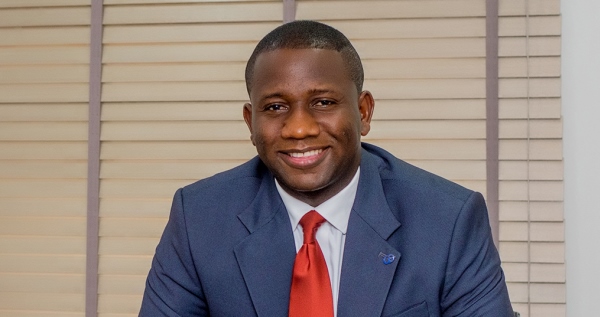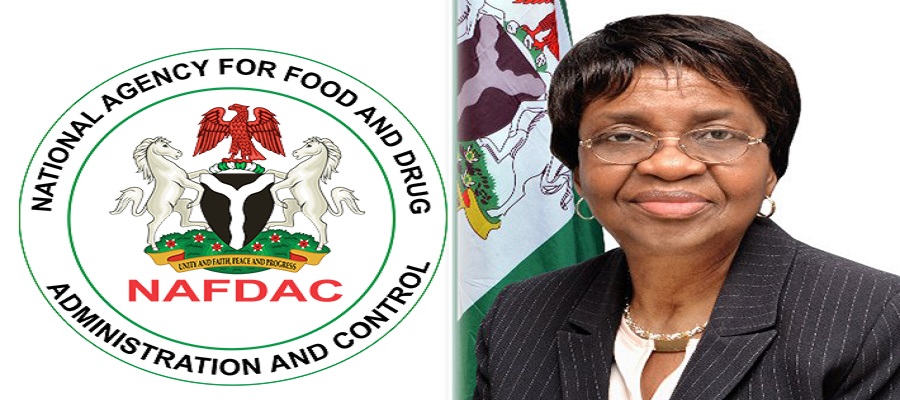News
SMEs as a Key Driver to Economic Growth in an Emerging Market

Adewale A. Adeyipo
In spite of the harsh economic conditions Nigeria is faced with, recent trends have shown there are opportunities for growth of the SME Industry in Nigeria. As reported by Nigeria Bureau of Statistics, 2019 Q1 GDP grew by 2.01%, with majority of this growth being associated with the Non-Oil Sector which is a positive sign and indicative of Nigeria’s possible diversification and less reliance on the oil sector to drive her economy.
The International Monetary Fund forecasts that GDP will increase by 2.1% in 2019, which would make Nigeria one of Africa’s slowest-growing economies and means that growth is negative in per capita terms.
While inflation is at 11.4% and has been above the Central Bank’s target of 6% to 9% for almost four years. How then can Nigeria survive the next four years of uncertainties in revenue generation, debt recovery rate, a further devaluation of Naira, low FDI flows into Nigeria in 2018, expected high fuel prices and insecurity? A recent report from Trading Economics shows that Nigeria’s all-time low of FDI inflow for 2018 Q4 was $314 million.
Nigeria’s population median age is 18 years that is made up of young, vibrant, skilled, and unskilled youths. With this youthful population and despite the tough economic conditions, I firmly believe Youth engagement through the SME approach can drive economic growth.
One of the key drivers to economic development in an emerging economy has been the successful engagement of SMEs, while the growth of economic development has been an essential goal for many developing nations of the world.
I wonder sometimes how a country with a 23% unemployment rate, inflation rate of 11.4% plans gets her citizen out of poverty which currently stand at 33.1% if not by empowering the populace that are living below the ‘Poverty Line. i.e. they live and sustain with less than $1 a day. The more people we have actively engaged, the better we are as a nation and with poverty alleviation.
The contribution of SMEs has been accepted as one of the primary supports for economic growth because of its ability to enhance economic output and improve human welfare. With so many challenges faced with SMEs in Nigeria today, low FDI inflows in 2018 is another critical indicator showing why tech firms like Google would establish an AI lab in Ghana and not in Nigeria despite current economic indicators showing that the Nigerian economy is stronger than Ghana’s economy.
Before a technological investment is made in any economy, the investing party measures the opportunity for growth, existing infrastructure, and innovation. Such parameters have side-lined Nigeria for several years. FDI inflow in Nigeria for Q1 2019 was recorded at $1.1 B (Trading Economics Reports).
Though many argue that FDI in Nigeria is usually low after a general election. The point remains that investors must see the basic amenities on ground before coming into any nation which of course stability and security is essential.
Jeff Dean’ the leading AI software engineer at Google, stated that Ghana is the ‘Future of Africa’ and it had to do with the robust network of academic institutions as well as infrastructure in place which was a significant factor on establishing an AI lab in Accra. – Aside from the ‘not too deliberate approach’ from the Government, inadequate Private-Public partnerships and collaborations amongst Government agencies.
The SMEs in Nigeria also lack access to relatively cheap and effective sources of funding, which hinders their growth and contribution to economic growth.
Agencies like SMEDAN can emulate Malaysia NSDC (National SME Development Council) as a use case where they demonstrated a positive impact on their economy since it was established in 2004.
As at 2015, the contribution of SME to the Malaysian economy was measured in terms of their share of the total number of businesses (97.3%) and share of the total number of jobs created at 59%. (Department of Statistics Malaysia)
International Finance Cooperation & World Bank’s Support on SMEs
Without a doubt, Government policies are one of the essential drivers for SMEs developments in any nation.
Two decades ago, Global Financial Institutions and Economic Organizations like World Bank and International Finance Corporation (IFC) emphasized the significance of small and medium-sized enterprises (SMEs), especially in developing regions like Nigeria, these bodies had consistently sought the support of the Government to implement policies for sustainable growth in human capital, financial inclusion, and technological advancement.
According to the World Bank Group, ‘The country partnership strategy period (FY2014-FY2019) has an investment of $8.8 billion through the International Development Association (IDA) and International Bank for Reconstruction and Development (IBRD).
Nigeria has been one of the International Finance Corporation’s (IFC) fastest growing portfolio and represents IFC’s fifth largest global country exposure, with a committed volume of $1.8 billion. Their support for Nigeria is structured around several priorities, which include promoting diversified growth and job creation with a focus on youth, women and the poor in marginalized areas; whilst improving social and financial inclusion.
It was estimated that most developing economies have a high potential in ensuring diversification, inclusiveness, and expansion of industrial production as well as the fulfillment of the fundamental objectives of development. As reported by the World Bank Group, the Country partnership period (FY2014 – FY2019) for Nigeria is expected to have achieved:
- 16% increase in power generation capacity; 8% increase in transmission capacity
- Improved access of small farmers to inputs and technology and improvement in their average income
- Improved road access for two million people in rural areas.
- Additional two million micro-entrepreneurs provided with financial services.
- Additional 100,000 loans provided to Small and medium enterprises (SMEs).
World Bank has estimated the growth rate for Nigeria’s economy in 2019 at 2.1% with job creation rise of 10% quarter-on-quarter if local or raw materials and resources are well utilized. SMEs depends on the use of raw materials and innovative technologies to further assist them in achieving their goal of self- reliance.
For example, Provision of starch as a raw material to the market can provide jobs for three different levels in starch production, Starch for consumption, starch for clothing, starch for pharmaceuticals. In this ecosystem, the raw material provider and the user creates more jobs and keep the SME ecosystem sustainable.
Adewale A. Adeyipo is Ag. CEO CWG Plc
News
NAFDAC Destroys over N1 Trillion Fake Drugs in Anambra

National Agency for Food and Drug Administration and Control (NAFDAC) has incinerated counterfeit, substandard, and fake pharmaceutical products valued at over N1trn at the Anambra State Waste Management Authority Dump Site in Agu Awka, Anambra State.

Mojisola Adeyeye, director general, NAFDAC
The haul, including banned substances like Analgin and controlled drugs such as Tramadol 225mg, was confiscated during a month-long enforcement operation targeting major drug markets.
The destruction which happened on Friday, was overseen by Martins Iluyomade, South-East Zonal Director, NAFDAC, representing Mojisola Adeyeye, director general, followed raids on Onitsha Bridge Head Drug Market (Ogbu-Ogu) and Ekumi/Tenant Road drug market in Aba.
She said, “We have come to realise that the time has come to put an end to the circulation of substandard medicines in Nigeria,”
The director also linked the proliferation of such drugs into society, to national insecurity.
She said, “The volume that we found during this exercise is more than enough to destabilise a country,”
According to Adeyeye, the operation uncovered an array of counterfeit goods, with Adeyeye highlighting the seizureMojisola Adeyeye of bulk volumes of narcotics and other medicines that are not approved because of their effect.
She credited the action with saving millions of lives and urged the public to report suspicious products, saying, “When they see something, they should say something.”
Mike Ozoemanam, managing director, Anambra State Waste Management Authority, representing Governor Chukwuma Soludo, praised NAFDAC’s efforts.
He said, “The governor took the bull by the horns because we saw the correlation between the fake drugs and the effect on our youths. We do not want it in Anambra State.”
The agency also commended the media’s role in the fight against fake drugs, calling for continued public support.
News
Bolt Shares the Spirit of Ramadan with Kano Drivers-Partners

Bolt, the leading ride-hailing platform, on Thursday, 19th of March hosted an Iftar gathering in Kano to bring together Muslim drivers during the holy month of Ramadan.

The event was not only an opportunity to share a meal but also served as a platform for open dialogue, feedback exchange, and community building within the Bolt driver network.
The Iftar event, held in recognition of the significance of Ramadan, reinforced Bolt’s commitment to supporting its driver-partners and fostering inclusivity across all communities.
The gathering provided an environment for drivers to voice their concerns, share their experiences, and engage directly with the Bolt team in a collaborative discussion about improving their experience on the platform.
Speaking during the event, Osi Oguah, the General Manager for Bolt Nigeria said: “At Bolt, we recognize the importance of creating a supportive and inclusive environment for our driver-partners.
“This Iftar event was more than just a meal, it was a chance to connect, listen, and understand the challenges and needs of our drivers in Kano. We appreciate their dedication, especially during this sacred period of Ramadan.”
Drivers in attendance expressed their appreciation for the initiative, highlighting the sense of belonging and recognition the event fostered.
Many also welcomed the opportunity to discuss ways to improve their overall experience on the Bolt platform, making it a productive and meaningful engagement for all participants.
Nura Muhammed, a driver-partner said: “We want to say thank you to Bolt for this initiative, if my knowledge serves me right, this is the first time a ride-hailing company will organize such an event in Kano.
“This event has also made it possible for us to share some feedback to them physically and we drivers mostly get to connect through our online platform but today, we’re able to meet physically, mingle and exchange pleasantries”
Bolt remains committed to strengthening driver engagement and well-being, and this Iftar gathering is part of a broader effort to continuously support and empower driver-partners across Nigeria.
News
FG Invests N2.5Bn in Satellite Surveillance System to Revolutionise Mining Sector

Federal government has unveiled N2.5 billion Satellite Surveillance System aimed at revolutionising the mining sector by boosting efficiency, improving safety measures, and fostering economic growth.

Dr. Olugbenga Oyewole, managing director, MikyWay Visuals Limited, detailed how the satellite technology will transform Nigeria’s mining landscape in an interview with Voice of Nigeria,
Oyewole, who represents the commercial wing of the National Space Research and Development Agency (NASRDA), the body responsible for implementing the satellite infrastructure, described MikyWay Visuals Limited as a “pseudo-government company,” highlighting its ties with the government through NASRDA.
“By using satellite data, we are able to monitor, assess, and provide actionable insights to help improve Nigeria’s mining sector,” he noted.
He said the key component of the satellite monitoring system is the creation of a comprehensive mineral map of Nigeria, which will outline the locations of various mineral deposits across the country, “by integrating satellite data with mining licenses issued by the Ministry of Solid Minerals, inspectors can easily identify illegal mining activities and ensure compliance with regulations.”
The Managing Director further explained that miners will be equipped with Radio Frequency Identification (RFID), tagged ID cards, which will enable authorities to verify the legitimacy of mining operations.
He noted that the satellite surveillance also serves a crucial safety function by assessing the integrity of mining sites.
“If a mine is at risk of collapse, the technology will trigger early warnings, allowing authorities to evacuate workers and prevent disasters.
“Satellite data gives us an overview of the entire country, and it doesn’t forget anything,” he said.
Oyewole stated that the system will track the movement of mined materials, process taxes and royalties, and generate QR codes that will facilitate the traceability of minerals as they are transported across the country.
“When customs or law enforcement encounter a truck carrying minerals, they can scan the QR code to verify the authenticity and trace the mineral back to its source,” he explained.
The first phase of the project will include the implementation of these technologies, while the second phase will focus on deploying the electronic reporting platform.
“The goal is to optimise revenue, enhance safety, and ensure that Nigeria’s mining industry operates responsibly and sustainably.”
Oyewole emphasised the principle of “working smart” in operations, noting that targeted strategies can significantly enhance efficiency.
For instance, rather than monitoring every border for illegal exports, customs officials can focus on specific routes, optimising resources.
This smart approach also extends to the mining sector, where inspectors can be directed to high-activity areas, minimising unnecessary manpower.
Oyewole explained that in cases where real-time data is needed, “drones connected to satellite communication are employed for live monitoring.”
Citing the ability to provide live footage of mining operations and share it instantly with government officials, allowing them to direct their teams efficiently.
He also touched on the security of satellite surveillance data, emphasising that access would be restricted on a “need-to-know” basis.
Mining inspectors would only have access to information relevant to their operations, while sensitive data would be available to select agencies like the Ministry of Mines and Steel Development, National Security Adviser (NSA), and the Department of State Services (DSS).
In addition, the technology allows for the review of historical data, which can be crucial for tracking unpaid revenues or past illegal activities.
On the topic of satellite and security data, Oyewole mentioned that the technology being used is beyond reproach.
“You can’t deceive anyone,” he said, referring to spectrophotometers and RFID chips that ensure the authenticity of materials being transported.
“If you are carrying in a truck, maybe you are carrying maybe some gold sand or something, and you get to the customs or anybody, or you meet the mining marshal, and you tell them that this is a bentonite, I’m going to just apply for them to drill pretending as if it’s ordinary sand.
“The spectrophotometer, once you point it at it, it will tell you exactly what and what are in that thing that you are carrying.”
In addressing concerns about the potential for corruption or compromise, Oyewole was confident that the transparency of the technology would eliminate such risks.
“Even if I, as the managing director, were to compromise, the ministry, NSA, or DSS would have access to the same data, making any attempts at deceit impossible.”
Oyewole also advocated for the establishment of refineries in Nigeria to further process minerals, such as gold, to international standards.
By doing so, he suggested, Nigeria could ensure the traceability of its minerals and maximise their economic value.
The government’s proactive approach to creating a traceable and responsible mining industry, he added, will be a key factor in boosting Nigeria’s global competitiveness in the sector.
He believes Nigeria embracing geospatial technology, is essential to effective national governance.
“The difference between Nigeria and America, lies in the use of technology and data agency collaboration. If we leverage these properly, Nigeria can emerge as a global leader, just as America has and we are excited, and this will not be another abandoned project,” he concluded.

 Broadcasting3 days ago
Broadcasting3 days agoPublic Outrage, Legal Threats as Abuja Council Demands N500, 000 as TV Levy

 E-Financial3 days ago
E-Financial3 days agoFIRS Partners Flutterwave for Digital Payment Collection

 Telecom3 days ago
Telecom3 days agoNigeria Charts New Course to Bridge Gender Digital Divide at UN’s CSW69

 General News2 days ago
General News2 days agoNigeria, Kenya among Nations Running out of HIV Drugs – WHO

 News2 days ago
News2 days agoNAFDAC Destroys over N1 Trillion Fake Drugs in Anambra

 General News3 days ago
General News3 days agoNIN Enrolment Hits 117.3m – NIMC

 E-Financial3 days ago
E-Financial3 days agoZuriel Oduwole, Sterling One Foundation, and Sanwo-Olu Champion Gender Equality and Youth Empowerment

 Telecom2 days ago
Telecom2 days agoTikTok and Truecaller Face NDPC Investigation Amid Data Protection Concerns

























